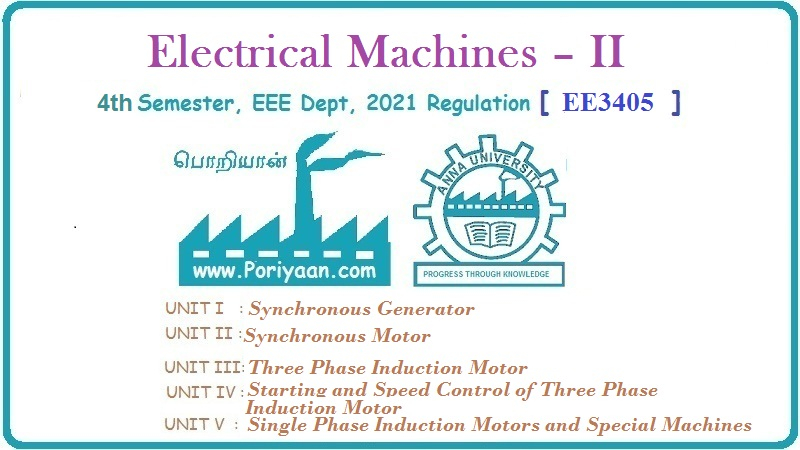Electrical Machines II: UNIT V: b. Special Machines
Servomotors
Requirements, Types
The servo system is one in which the output is some mechanical variable like position, velocity or acceleration. Such systems are generally automatic control systems which work on the error signals.
Servomotors
The
servo system is one in which the output is some mechanical variable like
position, velocity or acceleration. Such systems are generally automatic
control systems which work on the error signals. The error signals are
amplified to drive the motors used in such systems. These motors used in
servo systems are called servomotors. These motors are usually coupled to the
output shaft i.e. load through gear train for power matching.
These
motors are used to convert electrical signal applied, into the angular velocity
or movement of shaft.
1. Requirements of Good Servomotor
The
servomotors which are designed for use in feedback control systems must have
following requirements :
i)
Linear relationship between electrical control signal and the rotor speed over
a wide range.
ii)
Inertia of rotor should be as low as possible. A servomotor must stop running
without any time delay, if control signal to it is removed. For low inertia, it
is designed with large length to diameter ratio, for rotors. Compared to its
frame size, the rotor of a servomotor has very small diameter.
iii)
Its response should be as fast as possible. For quickly changing error signals,
it must react with good response. This is achieved by keeping torque to weight
ratio high.
iv)
It should be easily reversible.
v)
It should have linear torque - speed characteristics.
vi)
Its operation should be stable without any oscillations or overshoots.
2. Types of Servomotors
The
servomotors are basically classified depending upon the nature of the electric
supply to be used for its operation.
The
types of servomotors are as shown in the following chart :

Electrical Machines II: UNIT V: b. Special Machines : Tag: Engineering Electrical Machines - II : Requirements, Types - Servomotors
Related Topics
Related Subjects
Electrical Machines II
EE3405 Machine 2 EM 2 4th Semester EEE Dept | 2021 Regulation | 4th Semester EEE Dept 2021 Regulation
